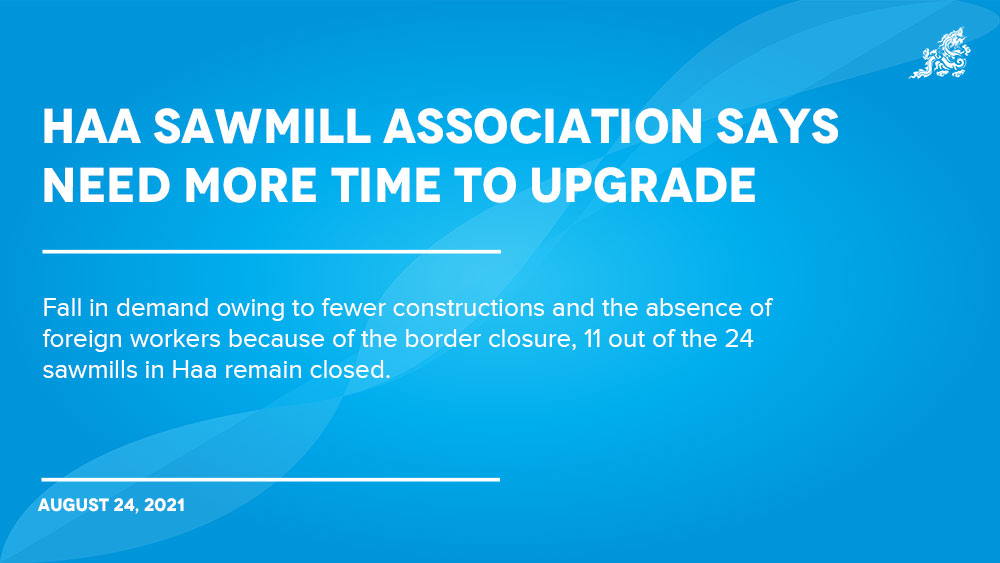Phub Dem | Haa
Fall in demand owing to fewer constructions and the absence of foreign workers because of the border closure, 11 out of the 24 sawmills in Haa remain closed.
The dzongkhag with the highest number of sawmills has been competing among themselves to supply timber to little construction work in the dzongkhag. Given the lack of work, sawmill owners are doubtful that they would be able to upgrade their establishments to an integrated wood-based industry amid the pandemic.
The Ministry of Agriculture and Forest asked the stand-alone stationary sawmills to upgrade to an integrated wood-based industry by December 31, 2022.
According to the letter from the ministry, failing to do so would result in deregistration of the sawmill, cancellation of licence by the economic affairs ministry, and debarment from monthly timber allotments by the forest department.
Representatives from the Haa sawmill association said that when sawmills were trying to make ends meet, the directive on the integrated wood-based industry was untimely.
According to a sawmill owner, Tashi upgrading requires procuring heavy machines, and it is difficult to buy these machines without business due to the pandemic.
The owner of GT sawmill, Tashi and his wife have been working in their sawmill with some locals.
Tashi said that he had to pay Nu 1100 and the day’s meal to the local helpers without domestic helpers. “When we calculate the cost of timber and labour charge, the cost of sawn logs increases. But when we compete to supply the timbers, the rate decreases drastically.”
He said he was willing to upgrade the sawmill to an integrated wood-based industry, but the financial investment was an issue. “If the government could provide low-interest loans keeping the machine as a mortgage, it will be doable.”
A stable market and sufficient raw material is a concern.
Tashi said, what if there was no export market after investing a considerable amount in procuring the materials. “What if all the sawmills in Haa apply for loans worth Nu 10 million each for the wood-based industry? I am worried about the trade balance.”
While the wood-based industry could employ some people, he said that if there were no stable market, the workers would be unemployed again. “There is risk in investing in such unpredictable ventures.”
An executive of the Haa sawmill association, Lhendrup Wangdi, said that conversion requires purchasing machines that were not feasible for the current market scenario, adding that importing expensive equipment during the pandemic was a wrong decision. “A wood-mizer costs around Nu 4 million. There will be a huge outflow of dollars.”
Besides, he said that introducing a mega wood industry questions raw material sufficiency and sustainability. “There should be a specification on the integrated industry. We don’t know what kind of integrated industry the government is talking about.”
He said that there was no need to shut down the existing Indian style sawmill to establish an integrated wood-based industry, adding that those willing to upgrade will do so per the market demand. “Sawmills are still required even if there is an integrated wood-based industry.”
The association sends its discussion and suggestion to the Association of Wood Based Industries, which includes questioning the feasibility to upgrade by 2022.
It further requested the AWBI to convey their request to the Department of Forests and Park Services to specify the type of saw machine and its feasibility in the country.
The association was willing to convert to wood-based industry only if the government agreed to provide financial support such as preferential loans at low-interest rates, fiscal incentives, and tax exemptions to help gradual upgradation.
For a smooth conversion, it recommended the department to conduct a consultative meeting to study the scope and efficiency involving officials from the economic affairs ministry, revenue and customs, Natural Resources Development Cooperation, AWBI.
Edited by Tshering Palden


